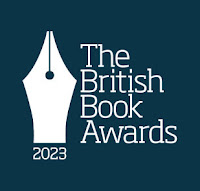I’m Canadian, born and raised in Toronto, which means most Americans I meet tease me about the way I pronounce “out and about,” insisting I say “oot and a-boot,” which, of course, is completely inaccurate!
Anyway, it’s not as if I get out or about all that often. I’m a notorious homebody, happiest when tapping away at my computer, reading a book, or binging episodes of Yellowstone, The Marvelous Mrs. Maisel, and so forth, my Golden Retriever Gibbs lying by my feet. But being an author means sometimes having to do, well, author-y things.
One author-y thing might be attending a conference or convention. I’m often asked by other authors (published and hopeful) to recommend “the best one.” Before I answer that, it’s important to note that while we tend to use conference/convention interchangeably, there are subtle differences. The primary purpose of an industry-specific and, in the case of writing, usually genre-specific, conference is the exchange of information with an educational component, a venue where attendees can learn and better themselves professionally. For example, a writing conference might offer master classes, manuscript critiques, and live agent and/or publisher pitch sessions. Conferences are often held in the same city each year. One example would be Killer Nashville.
Most writing conventions, on the other hand, are billed as fan-based, meaning the primary objective is to introduce readers to authors and vice versa. Some conventions will include an educational component, such as a workshop, but these are typically held prior to the start of the convention so as not to interfere with scheduled programming. Some conventions, like Malice Domestic, are held in the same city each year, while others, like Bouchercon, are often held in a different city each year, with discounted or group sightseeing excursions offered to attendees.
So, let’s get back to the original question. Which one is “best?” The answer is, it depends on you. What may be the perfect venue for an unpublished author looking for agent representation might not be the best fit for an author with multiple books under their belt. If you’re a debut author, you’ll want something that recognizes that accomplishment. My debut year, for example, was 2015, and I marked that milestone at Bouchercon Raleigh, where they had a lovely Debut Authors Breakfast.
There are other considerations as well:
Location: Do you want something close to home? Or would you prefer to combine business with pleasure and visit a place on your travel wish list, perhaps combining it with a family or solo vacation?
Total Cost: Think registration fee, travel, travel insurance, hotel, meals. Registration fees are usually tiered, with early-bird pricing that escalates as you get closer to the event.
Networking: Both conferences and conventions offer networking opportunities, though a smaller venue is generally more conducive to making one-on-one personal connections.
Your #1 Why: Pitching to an agent or publisher? Honing your craft? Mix and mingling with other authors, both published and aspiring?
Type of Event: Are you interested in writing in general, or would you prefer an event that has a genre-specific focus (e.g., romance, mystery, sci-fi)? In my experience, there are far more that are focused.
Additionally, genre-specific events will introduce you to like-minded individuals, providing an opportunity to network with readers and other authors, aspiring and published.
Virtual or Live: Many conventions now offer virtual options. The good news is the cost will be minimal (no travel-associated costs). The bad news is networking opportunities are minimal or non-existent. That said, virtual offerings are a way to dip your toe in the water to get a feel for the experience without diving into the deep end.
I’ve addressed each of these points, as well as other important considerations (like what to wear!), in my latest book, Finding YOUR Path to Publication: A Step-by-Step Guide. It’s the sort of book I wish I’d had when I was starting out, filled with easy-to-digest information on everything from publishing paths (and what to do to get there) to business basics, understanding royalties, contracts, and more. And the good news is, you don’t even have to leave the comfort of your own home to read it.
About the book: The road to publishing is paved with good intentions…and horror stories of authors who had to learn the hard way.
For the emerging author, the publishing world can be overwhelming. You’ve written the book, and you’re ready to share it with the world, but don’t know where to start. Traditional, independent press, hybrid, self-publishing, and online social platforms—all are valid publishing paths. The question is, which one is right for you?
Finding Your Path to Publication is an introduction to an industry that remains a mystery to those on the outside. Learn how each publishing option works, what to expect from the process start to finish, how to identify red flags, and avoid common pitfalls. With statistics, examples, and helpful resources compiled by an industry insider who’s been down a few of these paths, this is your roadmap to decide which path you’d like to explore, and where to begin your author journey.
Available in trade paperback, large print, hardcover, and e-book. Universal buy link: https://books2read.com/FindingYourPathtoPublication
***
A former journalist and magazine editor, Judy Penz Sheluk is the bestselling author of two mystery series: The Glass Dolphin Mysteries and Marketville Mysteries, both of which have been published in multiple languages. Her short crime fiction appears in several collections, including the Superior Shores Anthologies, which she also edited. Judy is a member of the Independent Book Publishers Association, Sisters in Crime, International Thriller Writers, the Short Mystery Fiction Society, and Crime Writers of Canada, where she served on the Board of Directors for five years, the final two as Chair. She lives in Northern Ontario. Find her at www.judypenzsheluk.com.

































